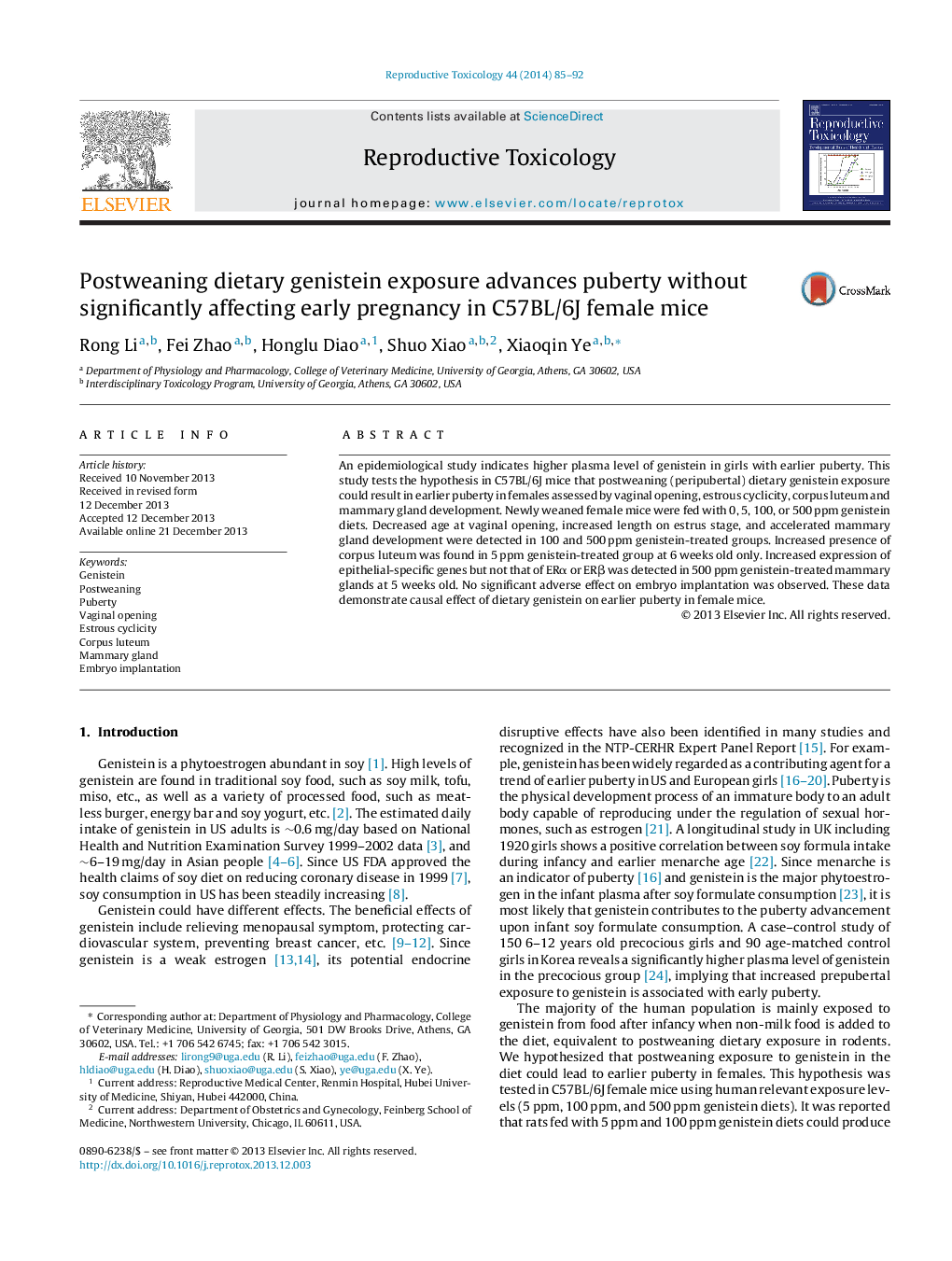| Article ID | Journal | Published Year | Pages | File Type |
|---|---|---|---|---|
| 5858870 | Reproductive Toxicology | 2014 | 8 Pages |
An epidemiological study indicates higher plasma level of genistein in girls with earlier puberty. This study tests the hypothesis in C57BL/6J mice that postweaning (peripubertal) dietary genistein exposure could result in earlier puberty in females assessed by vaginal opening, estrous cyclicity, corpus luteum and mammary gland development. Newly weaned female mice were fed with 0, 5, 100, or 500 ppm genistein diets. Decreased age at vaginal opening, increased length on estrus stage, and accelerated mammary gland development were detected in 100 and 500 ppm genistein-treated groups. Increased presence of corpus luteum was found in 5 ppm genistein-treated group at 6 weeks old only. Increased expression of epithelial-specific genes but not that of ERα or ERβ was detected in 500 ppm genistein-treated mammary glands at 5 weeks old. No significant adverse effect on embryo implantation was observed. These data demonstrate causal effect of dietary genistein on earlier puberty in female mice.
